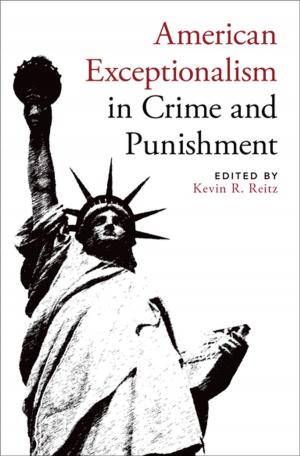Off Key
When Film and Music Won't Work Together
Nonfiction, Entertainment, Film, History & Criticism, Performing Arts, Music, Theory & Criticism| Author: | Kay Dickinson | ISBN: | 9780190296148 |
| Publisher: | Oxford University Press | Publication: | March 27, 2008 |
| Imprint: | Oxford University Press | Language: | English |
| Author: | Kay Dickinson |
| ISBN: | 9780190296148 |
| Publisher: | Oxford University Press |
| Publication: | March 27, 2008 |
| Imprint: | Oxford University Press |
| Language: | English |
In Off Key, Kay Dickinson offers a compelling study of how certain alliances of music and film are judged aesthetic failures. Based on a fascinating and wide-ranging body of film-music mismatches, and using contemporary reviews and histories of the turn to post-industrialization, the book expands the ways in which the union of the film and music businesses can be understood. Moving beyond the typical understanding of film music that privileges the score, Off Key also incorporates analyses of rock 'n' roll movies, composer biopics, and pop singers crossing over into acting. By doing this, it provides a fuller picture of how two successful entertainment sectors have sought out synergistic strategies, ones whose alleged "failures" have much to tell about the labor practices of the creative industries, as well as our own relationship to them and to work itself. A provocative and politically-conscious look at music-image relations, Off Key will appeal to students and scholars of film music, cinema studies, media studies, cultural studies, and labor history.
In Off Key, Kay Dickinson offers a compelling study of how certain alliances of music and film are judged aesthetic failures. Based on a fascinating and wide-ranging body of film-music mismatches, and using contemporary reviews and histories of the turn to post-industrialization, the book expands the ways in which the union of the film and music businesses can be understood. Moving beyond the typical understanding of film music that privileges the score, Off Key also incorporates analyses of rock 'n' roll movies, composer biopics, and pop singers crossing over into acting. By doing this, it provides a fuller picture of how two successful entertainment sectors have sought out synergistic strategies, ones whose alleged "failures" have much to tell about the labor practices of the creative industries, as well as our own relationship to them and to work itself. A provocative and politically-conscious look at music-image relations, Off Key will appeal to students and scholars of film music, cinema studies, media studies, cultural studies, and labor history.















